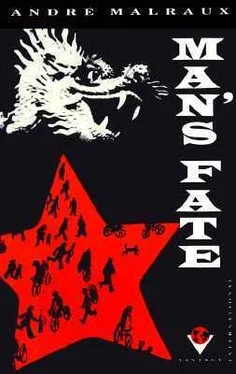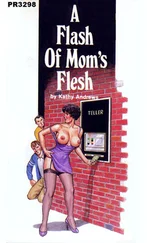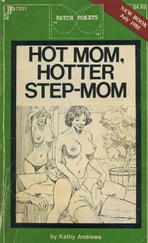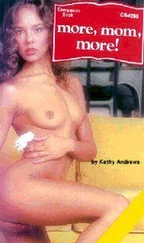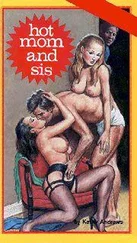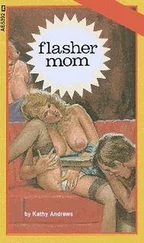Konig had called a secretary.
“Tomorrow.-Young Gisors-here. As soon as the councils are over.”
Five o'clock in the morning
Above the short flashes of the gun-shots, yellowish in the fading night, Katov and Hemmelrich, through the windows of the second story, saw the first leaden reflections of dawn on the neighboring roofs. The outlines of the buildings were becoming distinct. Pale, with their hair disheveled, they could begin to distinguish each other's features, and each knew what the other was thinking. The last day. Hardly any ammunition left. No popular movement had come to their rescue. Volleys, in the direction of Chapei: comrades besieged like themselves. Katov had explained to Hemmelrich why there was no hope: at any moment Chiang Kai-shek’s men would be bringing the small-caliber guns which the general’s guard had at their disposal; as soon as one of those cannons could be set up in one of the houses facing the post, mattresses and walls would fall as at a country-fair. The Communists’ machine-gun still commanded the door of that house; when it ran out of ammunition it would cease to command it. Which would be very soon.
For hours they had been firing furiously, egged on by the anticipated vengeance. They knew they were doomed, and killing was the only means of making their last hours count. But they were beginning to be weary of that too. Their adversaries, better and better sheltered, now appeared only at rare intervals. It seemed as if the battle were weakening with the night-and, absurdly, as if the dawning day, which did not reveal a single enemy shadow, were bringing their freedom, as the night had brought their imprisonment.
The reflection of dawn, on the roofs, was turning pale gray; above the suspended battle the light seemed to be inhaling large segments of the night, leaving only black rectangles in front of the buildings. The shadows grew shorter: looking at them helped to avoid thinking of the men who were about to die here. The shadows were contracting as on any other day, with their eternal movement, which today had a savage majesty because they would never see it again. Suddenly all the windows across the street were lighted up, and bullets came beating about the doorway like a volley of pebbles: one of their men had swung out a coat at the end of a stick. The enemy were satisfied to remain on the watch.
“Eleven, twelve, thirteen, fourteen. ” said Hem- melrich. He was counting the corpses now visible in the street.
“All that’s a joke,” answered Katov almost in a whisper. “All they have to do is to wait. Daylight is in their favor.”
There were only five wounded lying in the room: they were not groaning: two were smoking, watching daylight appear between the wall and the mattresses. Beyond, Suan and another combatant were guarding the second window. The volleys had practically ceased. Were Chiang Kai-shek’s troops waiting everywhere? Victors the month before, the Communists had known their moves hour by hour; today they knew nothing, like those who had then been the vanquished.
As if to confirm what Katov had just said, the door of the enemy building opened (the two halls faced each other); immediately the crackling of a machine-gun enlightened the Communists. “They brought it by way of the roofs,” thought Katov.
“Over here!”
It was his machine-gunners who were calling. Hem- melrich and he ran out, and understood: the enemy machine-gun, no doubt protected by an armor-plate, was firing steadily. There were no Communists in the corridor of the post, since it was under the fire of their own machine-gun which, from the top steps of the stairway, commanded the adversaries’ entrance. But now the latter were protected by the steel plate. Nevertheless it was imperative to maintain their fire. The marksman had fallen on his side, killed, no doubt; it was the feeder who had shouted. He was both feeding and firing, but slowly. The bullets caused splinters of wood from the steps and bits of plaster from the wall to bounce out, and occasional deadened sounds, forming imperceptible gaps in the terrific uproar, indicated that a few were entering the flesh of the living or the dead. Hemmelrich and Katov rushed forward. “Not you!” bellowed the Belgian. With a blow to the chin he sent Katov rolling in the hall, and jumped to the post of the gunner. The enemy was now firing a little lower. Not for long. “Are there any more cartridge-belts?” asked Hemmelrich. Instead of answering, the feeder plunged head forward, rolling limply down the whole length of the steps. And Hemmelrich discovered that he did not know how to feed a machine- gun.
He rushed up the stairs again, felt himself hit in the eye and in the calf. In the hall, above the angle of the enemy’s fire, he halted: his eye had been hit merely by a piece of plaster detached by a bullet; his calf was bleed- ing-another bullet, which had made a surface wound. Already he was in the room where Katov, propped against a wall, was pulling a mattress towards himself with one hand (not to protect himself but to hide from the enemy), and holding in the other a bundle of grenades: the grenades alone, if they exploded right against it, could be effective against the steel plate.
They had to be thrown through the window into the enemy corridor. Katov had placed another bundle behind him; Hemmelrich seized it and threw it at the same time as Katov over the mattress. Katov found himself on the floor, mowed by bullets, as if by his own grenades: when their heads and arms had passed above the mattress, the enemy had fired on them from all the windows. Hemmelrich, who had ducked in time, was wondering if that splitting of matches, so close to him, did not come from his own legs. The bullets continued to pour in, but the two men were protected by the wall now that they had fallen: the opening of the window was three feet above the floor. In spite of the gun-shots, Hemmelrich had an impression of silence, for the two machine-guns had ceased firing. He crawled forward on his elbows towards Katov, who did not stir; he pulled him by the shoulders. Out of range of the firing, they looked at each other in silence: in spite of the mattresses and other protection which obstructed the window, broad daylight now flooded the room. Katov was fainting. On his thigh was a large red spot which was spreading on the floor as on a blotter. Hemmelrich heard Suan shout: “The cannon!” then an enormous, deafening explosion, and, just as he was raising his head, a blow at the base of his nose: in his turn he fainted.
Hemmelrich was coming to, little by little, rising from the depths towards that surface of silence which was so strange that it seemed to revive him: the cannon was no longer firing. The wall was torn away obliquely. On the floor, covered with plaster and wreckage, Katov and the others, unconscious or dead. He was very thirsty, and feverish. His wound in the calf was not serious. He crawled to the door, and in the hall got up on his feet, heavily, leaning against the wall. Except for his head, where a piece of the masonry had hit him, his pain was diffused; clutching the banister, he went down, not the street-stairway, where the enemy were undoubtedly still waiting, but that of the court. The firing had ceased. Against the walls of the entrance hall there was a row of niches, which had formerly held tables. He slipped into the first one, crouched down, and looked out upon the court.
To the right of a building which seemed deserted (but he was sure that it was not), a sheet-iron shed; in the distance a house with curved-up gables and a row of tek- graph poles that extended, in diminishing perspective, towards the open country which he would not see again. The network of barbed wires in front of the door made black streaks across that dead scene and the gray daylight, like cracks in a porcelain dish. A shadow appeared outside, a kind of bear: a man facing in his direction, his back stooped; he began to climb through the barbed wires.
Читать дальше
